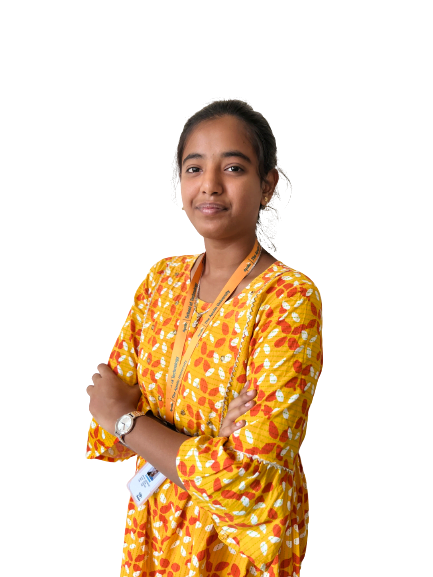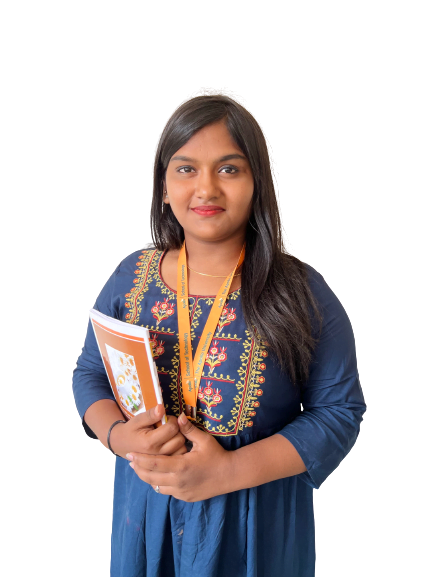COURSE OVERVIEW

The B.Tech. CSE programme at The Apollo University aims to provide expertise in computation through strong knowledge of Algorithms, Data Structures, and coding skills in programming languages like Python, C, Java and open-source technologies, Artificial Intelligence, Cloud and Big Data technologies.
The Department has well-equipped, specialised laboratory facilities like Python Programming, Programming for Problem Solving using C, Data Structures, programming with Objects, Database Management Systems, Web Application Development, Data Mining, Big Data and Analytics, etc.
The department has well-qualified and experienced faculty members. The faculty is a perfect blend of different specialisations in Computer Science and Engineering to impart their expertise in handling diversified courses of the UG Programmes. The teaching methodology in the department goes beyond fulfilling the syllabus requirements of the University to meet today’s industry needs.
The faculty motivates and guides the students to do mini-projects in core subjects. Special focus will be given to developing Communication and Soft Skills. The department has a strong association with industries to uplift the students’ practical knowledge.
PROGRAM OBJECTIVES
- To develop a strong theoretical and practical background across the computer science discipline with an emphasis on problem-solving.
- To inculcate professional behaviour with strong ethical values, leadership qualities, innovative thinkin and analytical abilities in the student.
- Develop professionals with sound knowledge of the theory and practice of computer science and engineering.
- Facilitate the development of academia-industry collaboration and societal outreach programmes.
- An ability to apply mathematical foundations, algorithmic principles and computer science theory in the modelling and design of computer-based systems in a way.
Industry Leader Speak
When it comes to choosing a career in the field of engineering, there are many options available. However, computer science engineering is often a popular choice amongst students because of its application in a wide range of fields. As the world continues to change at an instantaneous pace, it can be challenging to keep up with the latest trends. Nevertheless, understanding these latest technological trends is significant for businesses and individuals who want to stay at the forefront. The dynamic field of the Information Technology industry is full of new technologies, tools, software frameworks and innovative ideas. At The Apollo University, the focus of students is on the development of modern technologies as they occur symbiotically and inevitably affect one another.

Challa Vijay Kumar
Technical Manager
Galaxe Solutions India Pvt. Ltd.
PROGRAMME HIGHLIGHTS
The following are the advantages of Joining B.Tech. Computer Science & Engineering programme at The Apollo University

Programme Curriculum
-
Semester - I +
-
3 Week Induction Programme Course Code Course Name Periods
per weekCredits L T P BTCT1701 Engineering Physics 3 1 0 4 BTCT1702 Engineering Mathematics 3 1 0 4 BTCT1801 Problem Solving and Programming with C 3 1 0 4 BTCT1101 Communicative English 3 0 0 3 BTCT1201 University Elective I 3 0 0 3 BTCL1701 Engineering Physics Lab 0 0 3 1.5 BTCL1801 Problem Solving and Programming with C
Lab0 0 3 1.5 TOTAL 15 3 6 21
-
Semester - II +
-
Course Code Course Name Periods
per weekCredits L T P BTCT1703 Probability & Statistics 3 1 0 4 BTCT1802 Basic Electrical and Electronics Engineering 3 1 0 4 BTCT1301 Data Structures 3 1 0 4 BTCT1302 Python Programming 3 1 0 4 BTCT1102 Environmental Studies 3 0 0 0 BTCT1202 University Elective II 3 0 0 3 BTCL1802 Basic Electrical and Electronics Engineering
Lab0 0 2 1 BTCL1301 Data Structures Lab 0 0 2 1 BTCL1302 Python Programming Lab 0 0 2 1 TOTAL 18 4 6 22
-
Semester - III +
-
Course Code Course Name Periods
per weekCredits L T P BTCT2701 Discrete Mathematics and Graph Theory 3 1 0 4 BTCT2301 Design and Analysis of Algorithms 3 1 0 4 BTCT2302 Object Oriented Programming through Java 3 0 0 3 BTCT2801 Digital Logic design 3 0 0 3 University Core – III 3 0 0 3 University Elective -III 3 0 0 3 BTCT2303 Constitution of India 3 0 0 0 BTCL2301 Java Programming Lab 0 0 2 1 BTCL2801 Digital Logic Design Lab 0 0 2 1 TOTAL 21 2 4 22
-
Semester - IV +
-
Course Code Course Name Periods
per weekCredits L T P BTCT2702 Deterministic Stochastic and Statistical
Methods3 1 0 4 BTCT2901 Management for Engineers 3 0 0 3 BTCT2501 Software Engineering 3 0 0 3 BTCT2304 Database Management Systems 3 0 0 3 BTCT2305 Operating Systems 3 1 0 4 BTCT2502 Computer Organization and Architecture 3 0 0 3 BTCT2306 Universal Human Values 3 0 0 0 BTCL2302 Database Management Systems Lab 0 0 2 1 BTCL2501 Exploratory Data Analytics with R lab 0 0 2 1 BTCI2301 Internship – I will be Evaluated in V Sem – – – – TOTAL 21 2 4 22
-
Semester - V +
-
Value Added Courses Course Code Course Name BTCA0001 Getting Started with Google Cloud Learning Path BTCA0002 Fundamentals of Data Analytics BTCA0003 Introduction to Blockchain Technology BTCA0004 Oracle Cloud Infrastructure Architect V – Semester Course Code Course Name Periods
per weekCredits L T P BTCT3501 Full Stack Web Development 3 0 0 3 BTCT3301 Computer Networks 3 0 0 3 BTCT3502 Data Warehousing and Mining 3 0 0 3 BTCT3401 Faculty Elective-I 3 0 0 3 BTCT3601 Program Elective-I 3 0 0 3 BTCM3501 MOOC – I 0 0 0 3 BTCL3301 Full Stack Web Development Lab 0 0 2 1 BTCL3501 Data Warehousing and Mining Lab 0 0 2 1 BTCI3301 Internship – I Evaluation 0 0 4 2 TOTAL 15 0 8 22 Faculty Elective -I Program Elective -I Course
CodeCourse Name Course
CodeCourse Name BTCT3401a Object Oriented Analysis and Design BTCT3601a Software Testing
MethodologiesBTCT3401b Software Engineering BTCT3601b Distributed Computing BTCT3401c Artificial Intelligence BTCT3601c Advanced Java
ProgrammingBTCT3401d Computer Organisation and
ArchitectureBTCT3601d Network Security BTCT3401e Software Engineering BTCT3601e Database Security BTCT3401f Advanced Data Structures BTCT3401g Data Warehousing and Mining BTCT3401h Machine Learning BTCT3401i Differential Equations and Vector
CalculusBTCT3401j Numerical Methods for Engineers BTCT3401k Mathematical Foundations of Cyber
SecurityBTCT3401l Information Retrieval Systems BTCT3401m Cryptography and Network security BTCT3401n Principles of Programming Languages BTCT3401o Unix and Shell Programming BTCT3401p Introduction to Psychology BTCT3401q Industry 4.O BTCT3401r Computer Vision
-
Semester - VI +
-
Value Added Courses Course Code Course Name BTCA0005 Database Engineer Learning Path BTCA0006 Big Data Foundation Course BTCA0007 Programming Basics for Blockchain Engineers BTCA0008 Oracle Cloud Security Administrator VI – Semester Course Code Course Name Periods
per weekCredits L T P BTCT3302 Automata and Compiler Design 3 1 0 4 BTCT3503 Cloud Computing 3 0 0 3 BTCT3402 Faculty Elective -II 3 0 0 3 BTCT3602 Program Elective – II 3 0 0 3 BTCT3603 Program Elective – III 3 0 0 3 BTCM3502 MOOC-II 0 0 0 3 BTCL3502 Android Application Development Lab 0 0 2 1 BTCL3503 Cloud Computing Lab 0 0 2 1 — Internship – II will be Evaluated in VII Sem – – – – TOTAL 15 1 4 21 Faculty Elective -II Program Elective -II Course
CodeCourse Name Course Code Course Name BTCT3402a Design Patters BTCT3602a Deep Learning BTCT3402b Cyber Security BTCT3602b Intrusion Detection System BTCT3402c Software Project Management BTCT3602c Internetworking with TCP/ IP BTCT3402d Linux Programming BTCT3602d Digital Signal Processing BTCT3402e Cloud Computing BTCT3602e Database Administration BTCT3402f Mobile Computing Program Elective -III BTCT3402g Image Processing BTCT3603a Software Project Management BTCT3402h Deep Learning BTCT3603b High Performance Computing BTCT3402i E-Commerce BTCT3603c MERN Technologies BTCT3402j Block Chain Technology BTCT3603d Cyber Security BTCT3402k Mathematical Foundations of Data
ScienceBTCT3603e Software Requirements
ManagementBTCT3402l Transforms and Boundary Value
ProblemsBTCT3402m Optimization Techniques BTCT3402n Information Security BTCT3402o Ethical Hacking BTCT3402p Internet of Things BTCT3402q Embedded Systems BTCT3402r Green Computing BTCT3402s Cloud Security BTCT3402t DevNet BTCT3402u Advanced Computer Networks BTCT3402v Network Security BTCT3402w Fault Tolerant Systems BTCT3402x Computational Intelligence BTCT3402y Data Analytics with Tableau
-
Semester - VII +
-
Value Added Courses Course Code Course Name BTCA0009 Network Engineer Learning Path BTCA0010 BDA Foundation BTCA0011 Blockchain Essentials BTCA0012 Oracle Cloud Operations Engineer VII – Semester Course Code Course Name Periods
per weekCredits L T P BTCT4501 Big Data Analytics 3 0 0 3 BTCT4502 Internet of Things 3 0 0 3 BTCT4601 Program Elective – IV 3 0 0 3 BTCT4602 Program Elective – V 3 0 0 3 BTCM4501 MOOC-III 0 0 0 3 BTCP4301 Mini Project 0 0 2 1 BTCL4501 Big data Analytics Lab 0 0 2 1 BTCL4502 Internet of Things Lab 0 0 2 1 BTCI4301 Internship-II Evaluation 0 0 4 2 TOTAL 12 0 10 20 Program Elective -IV Program Elective -V Course
CodeCourse Name Course
CodeCourse Name BTCT4601a Augmented & Virtual Reality BTCT4602a Mobile Computing BTCT4601b Block Chain Technology BTCT4602b Secured Software Engineering BTCT4601c Natural language Processing BTCT4602c Hands on DevOps BTCT4601d No SQL DataBases BTCT4602d Game Programming BTCT4601e Soft Computing BTCT4602e Operating System Security
-
Semester - VIII +
-
Value Added Courses Course Code Course Name BTCA0013 Cloud Developer Learning Path BTCA0014 Big Data Technology BTCA0015 Certified Blockchain Developer VIII – Semester Course Code Course Name Periods
per weekCredits L T P BTCP4302 Project Work 0 0 24 12 BTCV4301 Comprehensive Viva-Voce 0 0 2 1 TOTAL 0 0 26 13
PROGRAMME FEE AND SCHOLARSHIPS
| One-Time Fee | Admission Fee | ₹ 7,000 |
| 1st Year | Tuition Fee + Annual Recurring Fee | ₹ 2,20,000 + ₹ 13,000 |
| 2nd Year | Tuition Fee + Annual Recurring Fee | ₹ 2,20,000 + ₹ 13,000 |
| 3rd Year | Tuition Fee + Annual Recurring Fee | ₹ 2,20,000 + ₹ 13,000 |
| 4th Year | Tuition Fee + Annual Recurring Fee | ₹ 2,20,000 + ₹ 13,000 |
| Total Programme Fee (4 Years) | ₹ 9,39,000 |
Scholarship is available for eligible students
Eligibility
Candidates must secure 50% in Physics, Chemistry and Mathematics of the Intermediate or in the diploma course or must have appeared for Class 12 or equivalent examination with Physics, Chemistry and Mathematics as major subjects from any recognised board. Candidates who have completed or qualified for the final year of a diploma in engineering courses are also eligible. Candidates must not exceed the age of 24 years and the minimum age for applying is 17 years as of 31st December of the Calendar Year.
Lateral Entry
| Total Course Duration | You Will Join In | Seats Available | Education Qualification |
|---|---|---|---|
| 3 Years | 2nd Year | 12 | Students must have completed their three-year engineering diploma in ANY branch of Engineering and Technology from a recognized institute to apply for this program. They also must have secured at least 50% marks in their diploma program. |
EMPLOYABILITY AREAS
The CSE graduates can explore the employment opportunities in various public and private sectors. They mostly acquire the following positions:
- Big Data Engineer
- Cloud Engineer
- Data Scientist
- Database Administrator
- Full Stack Developer
- DevOps Engineer
- Game Developer
- Mobile App. Developer
- Web Developer
- Software Developer
FAQs
-
Is B.Tech. CSE good? +
-
Yes, a B.Tech. in Computer Science Engineering is an excellent career choice. It has huge demands in the various sectors of industry. After completing the course, you will have an opportunity to work as an AI/ML engineer, software developer, data analyst, data scientist, cybersecurity expert, cloud engineer, blockchain developer, etc.
-
Can I do B.Tech. CSE after 12th? +
-
Yes, you can. To apply for a B.Tech. programme, the candidate must meet these eligibility criteria:
- Class 12th from a recognised board with at least 50% marks.
- Must have Physics, Chemistry and Mathematics as major subjects in class 12.
-
Is B.Tech 3 years or 4 years? +
-
A Bachelor of Technology (B.Tech.) degree is typically a 4-year undergraduate programme, divided into eight semesters.
-
Is B.Tech. better than BCA? +
-
Since both B.Tech. & BCA programmes are associated with computer science, it is wrong to say one is better than the other. The choice of the course depends on your career goals and aspirations. B.Tech. is a more comprehensive and detailed course that primarily has an engineering-oriented approach, while BCA is more focused on computer applications. Always choose a course that suits your future goals and interests.
-
B.Tech. IT or CSE which is better? +
-
Your professional goals and interests will determine whether you pursue a B.Tech. in Computer Science Engineering (CSE) or a B.Tech. in Information Technology (IT). CSE usually provides greater prospects in areas like AI, ML, and software development, leading to possibly better pay, whereas IT focuses on practical application and infrastructure management.
-
Is B.Tech. CSE difficult? +
-
B.Tech. CSE is generally easier than other engineering branches. However, it requires significant effort because the course includes mathematics, logical thinking and programming. The initial two years, with foundational subjects like mathematics and science, often require more effort. It is a challenging but achievable course that requires constant effort and patience.
-
Is B.Tech. CSE worth it? +
-
Absolutely, a B.Tech. CSE (Computer Science and Engineering) is considered a very valuable and relevant degree. Considering the increasing role of AI/ML, growing use of data in decision-making, the world moving towards digitalisation and growing concerns of cybersecurity, the future scope of B.Tech. CSE is extremely bright.
-
Is B.Tech. CSE in demand? +
-
Yes, a B.Tech. CSE is in great demand, both in India and internationally. This is due to a growing dependence on technology in numerous businesses, which has resulted in an increasing demand for qualified individuals in software development, data science, and other related disciplines.
-
Which course is best in B.Tech.? +
-
The ‘best course’ depends on your individual interests, career goals, future aspirations, and job market demand. However, there are some B.Tech. courses, like B.Tech. CSE, which has a huge demand in the job market. Apart from this, B.Tech. IT, B.Tech. ECE, B.Tech. AI and B.Tech. EE also offer a lucrative career scope.
-
How many subjects are in computer science engineering 1st year? +
-
In the first year of a Computer Science Engineering (CSE) degree, students generally study 8-10 subjects. These subjects frequently include fundamental subjects in mathematics, physics, and chemistry, as well as introductory computer science courses.
-
What is the scope of B.Tech. Computer Science Engineering? +
-
A B.Tech. in Computer Science (CSE) provides a diverse and in-demand career path in the IT and technology sectors. Graduates can pursue careers in a variety of fields, including software development, data analysis, cybersecurity, and AI/ML. The scope also includes employment in research, academia, and even entrepreneurship.
-
What are the career opportunities after B.Tech. in Computer Science Engineering at The Apollo University? +
-
Career opportunities after B.Tech. in CSE at The Apollo University include roles such as Software Engineer, Full-Stack Developer, Mobile App Developer, Data Scientist and Data Analyst.
-
What are the benefits of studying B.Tech. in Computer Science and Engineering at The Apollo University? +
-
The Apollo University emphasises cross-disciplinary learning, enabling students to explore diverse fields and expand their knowledge beyond their major study area. Practical, hands-on experience is a cornerstone of The Apollo University programmes, providing students with the skills and knowledge they need to succeed in the real world.
-
How can I apply for the B.Tech. in Computer Science Engineering programme at The Apollo University? +
-
To apply you can follow these 5 simple steps:
- STEP 1: Register Yourself
- STEP 2: Verify Email
- STEP 3: Fill Application Form Online
- STEP 4: Pay Registration Fee
- STEP 5: Submit Application











